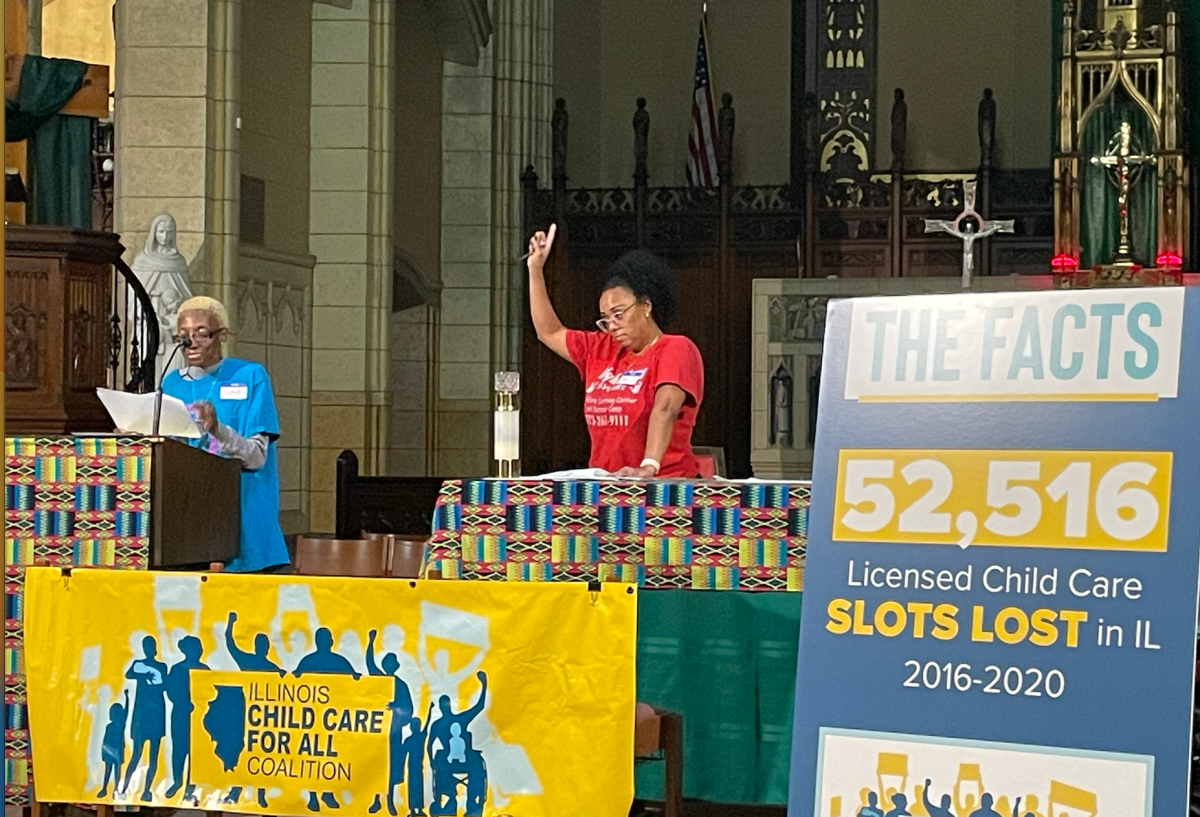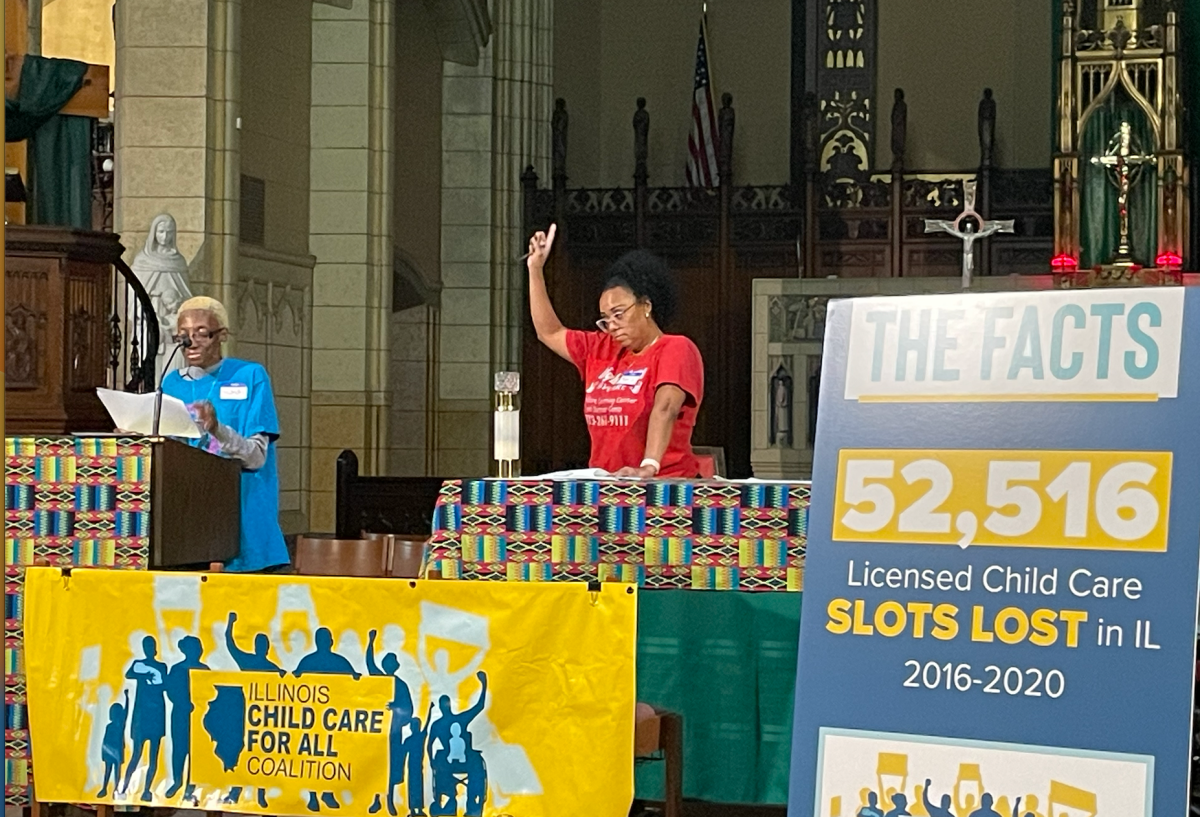News
Austin Weekly News: Child care workers, parents urge city to increase child care funding

High costs of child care and low wages for child care workers must be addressed, organizers say

West Side parents, teachers and child care workers joined a coalition urging city officials to increase funding for child care in the 2024 city budget Thursday night.
The push comes after $24 billion in federal pandemic relief funding for child care expired on Sept. 30.
Organizers of the Illinois Child Care for All Coalition said 130,000 Illinois families could lose access to child care. The end of pandemic aid could also push child care centers to close. Families may also be forced to pick between working or paying for child care, organizers said.
High costs of child care financially strain parents like Lisa Russell from Garfield Park who spoke to about a dozen attendees, including Ald. Jason Ervin (28th) at a town hall in a Garfield Park church.
High costs in child care impose additional barriers for working mothers. Expensive child care and minimum public investment, in the form of subsidies or publicly funded childcare, force mothers to quit their jobs. Mothers with lower wages are especially affected, the Department of Labor reported early this year.
In Cook County, women’s median earnings are $32,000 while the median cost of childcare at a daycare center is about $18,000 dollars, data by the Department of Labor shows. That cost represents near 19% of the median family income in the county.
In West Side communities, between 15% to 25 % of family households are single-parent households, data by the Chicago Metropolitan Agency for Planning shows.
Russell’s daughter was forced to quit her job after receiving a promotion, as the wage increases disqualified her from the state’s assistance program.
Since its launch, the Illinois Child Care for All Coalition has pushed for expanding income-based eligibility to the Illinois child care assistance program.
Russell, also a former special needs educator, said the city should invest resources to help parents afford child care. Parents of children with disabilities further struggle to find accessible and affordable child care within their communities, said Chicago parent Yolanda Williams.
“An investment in child care is an investment in a workforce powered by women, working parents and our children,” Williams said.
Simultaneously, wages paid to child care providers are low when compared with the cost of living. Child care workers are also required to complete specialized training, difficult to pay for on their current wages, several child care workers said.
Jamila Wilson, an Austin home child care provider and member of SEIU Illinois, said low wages cause workers in the industry to struggle to afford child care for their own.
Many child care providers have left the field for jobs with better wages, further exacerbating the shortage of child care workers, labor organizers said. According to the coalition, 58% of Illinois residents live in an area where there aren’t enough nearby childcare providers.
Syvelia Pittman, a teacher at Nash Elementary School and member of the Chicago Teachers Union said in her experience, limited access to child care affects the early development of Black and Brown children.
Members of the Illinois Child Care for All include parents and organizations such as SEIU Healthcare Illinois, the Chicago Teachers Union and the Coalition for Spiritual & Public Leadership.
“We need our city budget to reflect how important child care is in Chicago,” said Erma Jackson, a home child care provider for Garfield Park and Humboldt Park families.